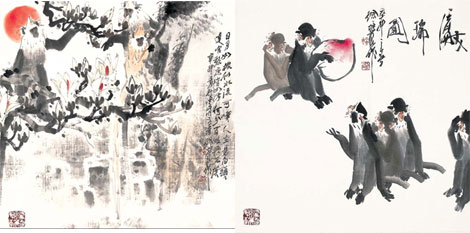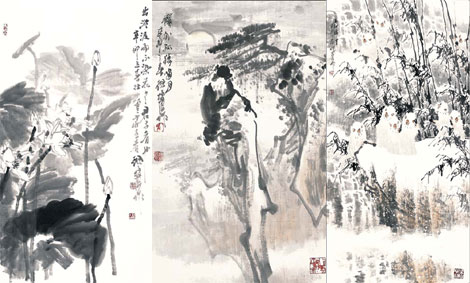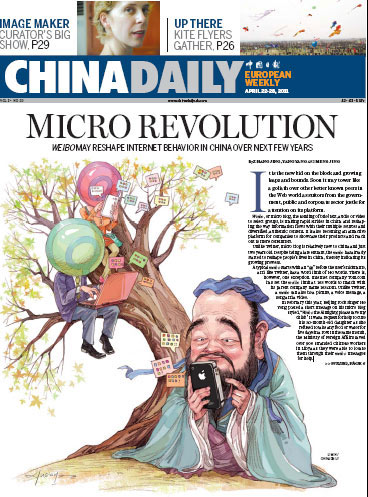Art
A place where humans and nature get along
Updated: 2011-04-18 08:01
By Li Jin (China Daily)
|
Xu Peichen's passion for monkeys had earned him a reputation as the 'Monkey King'. He is the only recognized heir to an earlier monkey artist, the great Song Dynasty painter Yi Yuanji. |
The monkey, one of the signs of the Chinese zodiac, has an understandably long and popular history as a subject of the paintings of many Chinese artists - though none you might instantly recognize.
The most famous classical monkey painter is Yi Yuanji, of the Song Dynasty (960-1279). After that, no one was as recognized as Yi.
Now, almost 950 years later, a contemporary Chinese monkey master, Xu Peichen, has gained renown, to the degree that he is regarded as the "Oriental monkey king". This comes thanks to his impressionistic, almost abstract, monkeys.
And that is why Xu has been invited by the United Nations to celebrate Chinese Culture Day, on April 20, in New York City. Xu will be taking many of his paintings to the celebration to show China's traditional ink form.
|
He's not only at home with man's nearest relative, his work covers a wide range of subjects, including the traditional landscapes, birds and flowers. Photos provided to China Daily |
Xu, who was born in 1951, is a professor and master's advisor at Nanjing Normal University in Jiangsu province.
He came to see that painting the traditional subjects of the form would not gain him the fame he craved.
He also knew that, after Yi Yuanji, for hundreds of years, there had been no one recognized as a "monkey artist", so he took it upon himself to make the loveable, curious animals his life's work. He was nearly 30 at the time.
That decision led to some achievements with monkey paintings and he become the undisputed master after Yi Yuanji, said Ma Hongzeng, an art critic.
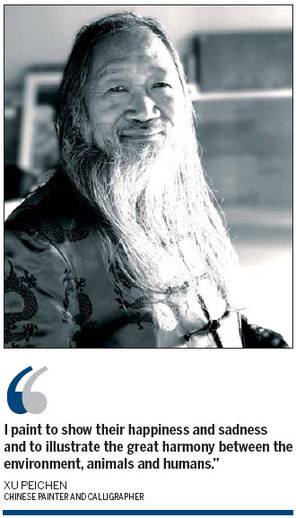 |
Over the past three decades, Xu has traveled to many scenic spots in China to get as close as possible to monkeys and to see what they do and how they communicate with each other.
"I was impressed by the cute monkeys when I was visiting the Emei Mountains in Sichuan province 30 years ago," Said Xu.
"After that, wherever there were monkeys you could find my footprints. I paint to show their happiness and sadness and to illustrate the great harmony between the environment, animals and humans."
Zuo Zhuangwei, another painter who studies aesthetics and has studied Xu's art for a long time, has said, "He portrays monkeys as humans. The relations between monkeys can reflect those of human society.
"Focusing on the lives of monkeys, his paintings show his awareness and understanding of relations between individual humans and society, and humans and nature and life and fate.
"To express his social and aesthetic ideals, he created a perfect environment in which humans and nature get along in harmony, which is the ideal world humans want," Zuo added.
He said that the way Xu draws is like cao calligraphy - full of freedom and passion. He can paint as rapidly as a storm or as slow as describing something with special care.
"Throughout his work, Xu's free-style monkey paintings have created his own style unprecedented in history."
E-paper
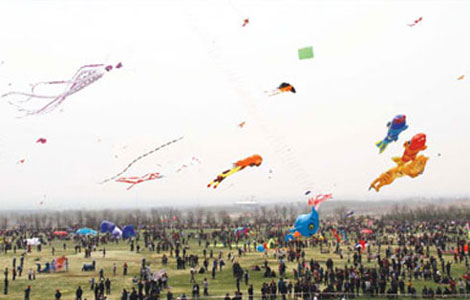
Blowing in the wind
High-Flyers from around the world recently traveled to home of the kite for a very special event.
Image maker
Changing fortunes
Two motherlands
Specials

Models gear up car sales
Beauty helps steer buyers as market accelerates.
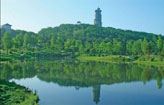
Urban breathing space
City park at heart of Changchun positions itself as top tourism attraction

On a roll
Auto hub Changchun also sets its sight on taking lead in railway sector
